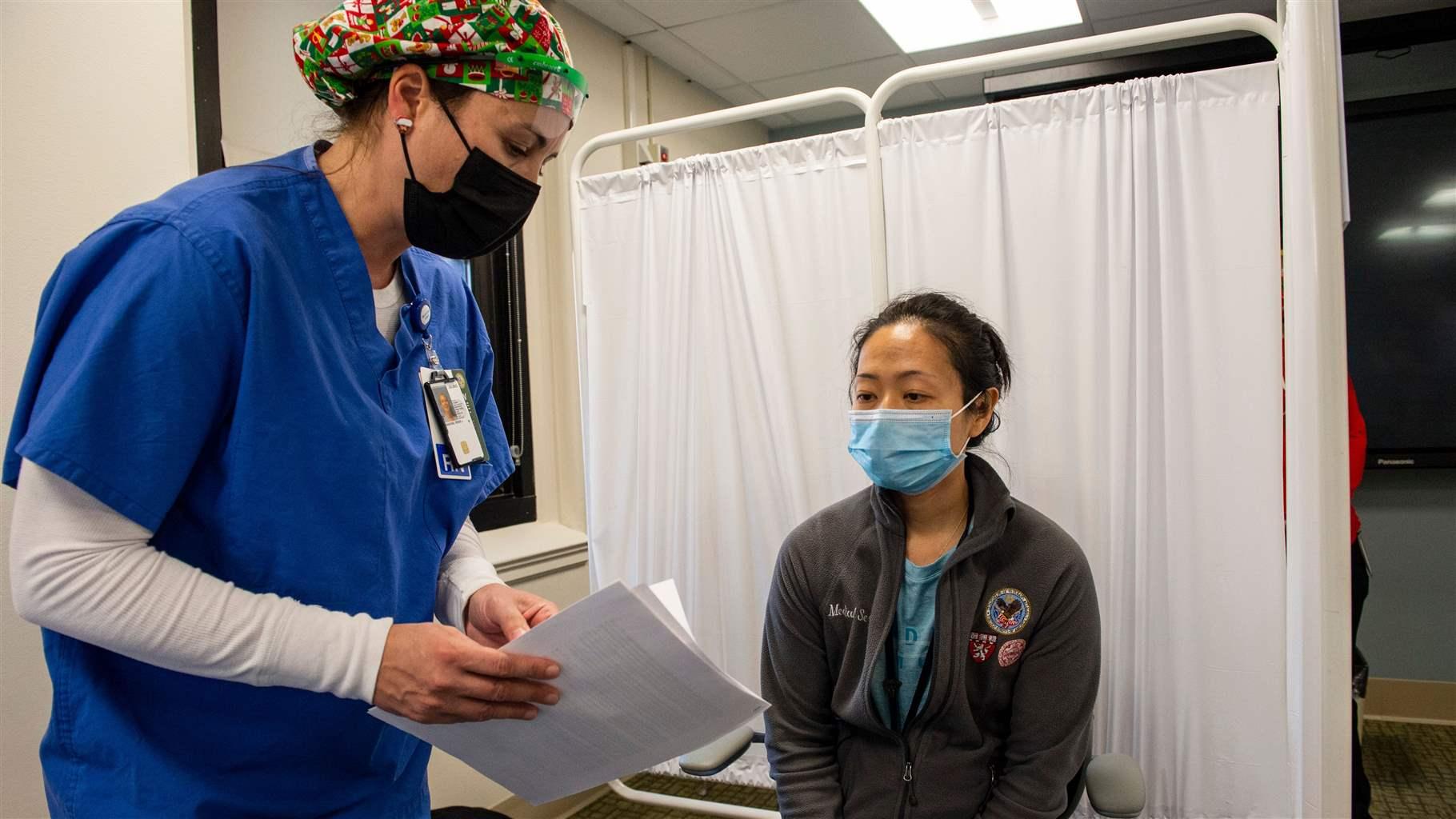U.S. Agency Prioritizes Sharing Data on Social Determinants of Health, Such as Housing and Transportation
Additional steps are needed to fill remaining health IT gaps to protect communities, improve patient matching

On July 9, the Office of the National Coordinator for Health Information Technology (ONC), the federal agency that oversees health information technology, announced a long-awaited change that could help doctors and nurses provide better, more timely care for their patients.
The agency released an updated version of the U.S. Core Data for Interoperability (USCDI), a list of information that all electronic health record (EHR) systems must be able to share with each other—and without which providers may not have all the background they need to provide the right care for their patients.
In its update, ONC included data on social determinants of health, which can be essential to serve patients who face socioeconomic challenges or other barriers to care. Although this is good news, the agency did not include some other types of data that could, for example, help providers accurately link patients to medical records held in different locations or support public health authorities in their efforts to protect their communities. Fortunately, ONC has other ways it can achieve those goals.
USCDI is designed to ensure providers have the background they need to care for patients. The list includes fundamental data such as demographic information, allergies, immunizations, and medications, but also things such as clinical notes that provide more context on patients' health or other details of care. Despite the intent, however, the dataset hasn’t always included all the information providers may need.
Of particular note in ONC’s recent announcement was the inclusion of data on social determinants of health, which are factors that can worsen individuals’ health or make it harder to obtain treatment, such as housing insecurity, food status, or lack of adequate transportation. This information can help providers understand more about their patients’ health and point them to additional resources that may be available, including food pantries or ride services. Social determinant data was not included in the first version of USCDI, but comments from Pew and other organizations noted its importance for providing quality care. By including these elements within USCDI, ONC is helping patients receive better—and more complete—care.
Yet the updated dataset still has some gaps. For example, Pew has urged the agency to make it easier to gather and share more data that could support public health efforts including contact tracing, case investigation, disease surveillance, and other activities to slow the spread of diseases. This type of data could include details such as an individual’s pregnancy status, travel and work history, and the types of lab tests that were done, among other things.
ONC’s Health IT Advisory Committee recently recommended ways for health care providers and others to better share data with public health agencies. These included setting standards for how data should be depicted so public health officials can receive complete information, as well as working with other federal agencies to incentivize health care organizations, providers, and labs to exchange data electronically.
Pew’s earlier comments to ONC also urged the agency to standardize how patients’ addresses are recorded in EHRs, which could help accurately link individuals to the correct medical record. Research has found that recording addresses using the U.S. Postal Service’s standard would boost match rates by up to 3%, which could translate into tens of thousands of records a day that would not otherwise be matched. Although this requirement was not included in the updated version of USCDI, another initiative from ONC, “Project US@,” could also make this a reality.
Even with this remaining work, ONC’s announcement marks a meaningful step forward in ensuring providers have the data they need to offer the best care possible for their patients. EHR vendors should work to update their systems so they can share the expanded USCDI as soon as possible, giving patients and providers access to more data with which to make informed care choices. As those companies begin their work, ONC must prioritize enhanced data-sharing in future updates to USCDI to ensure providers have all the information they need to provide the best possible care.
Molly Murray manages The Pew Charitable Trusts’ health information technology project.






